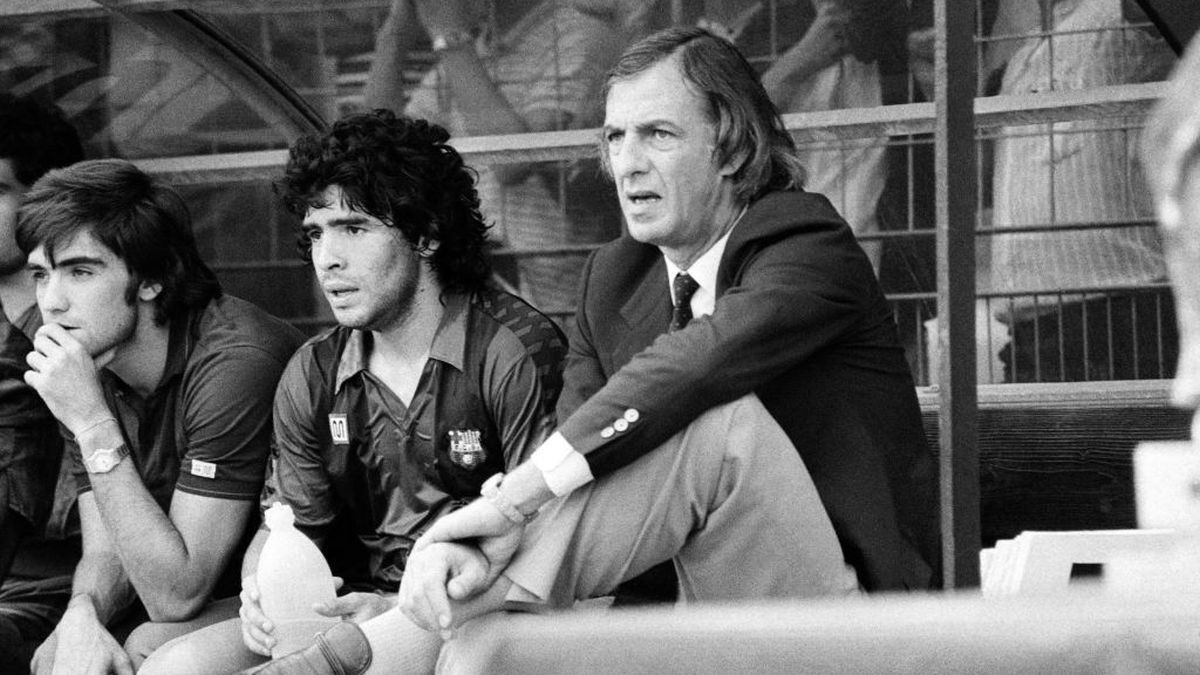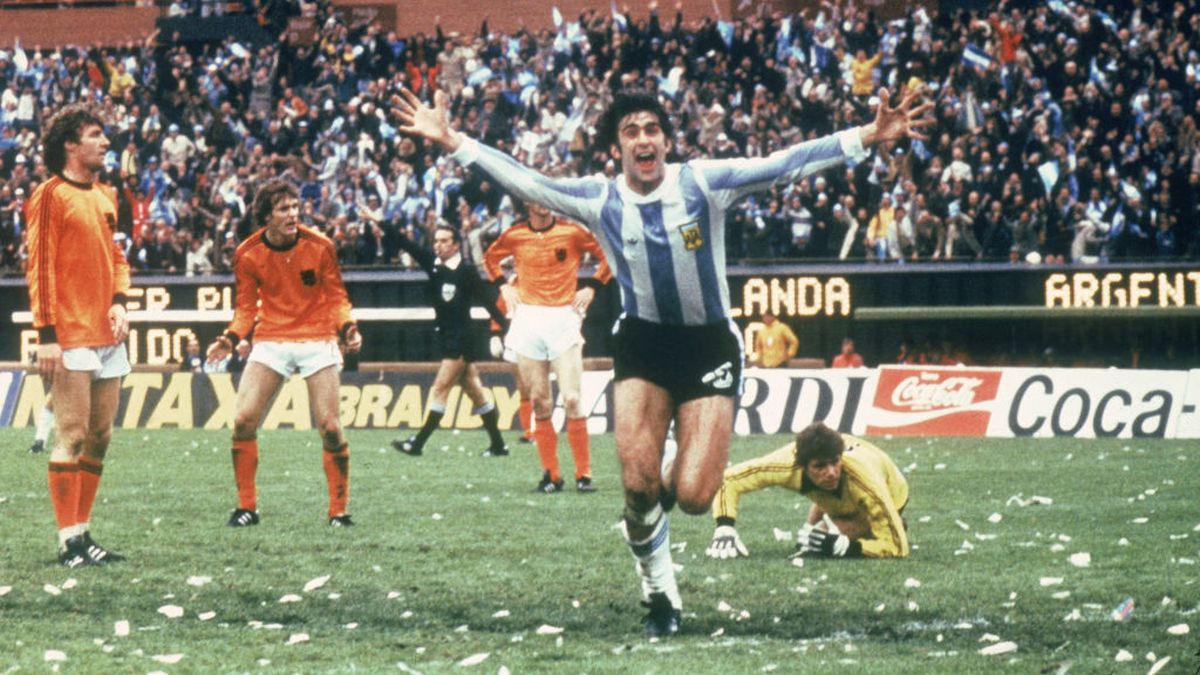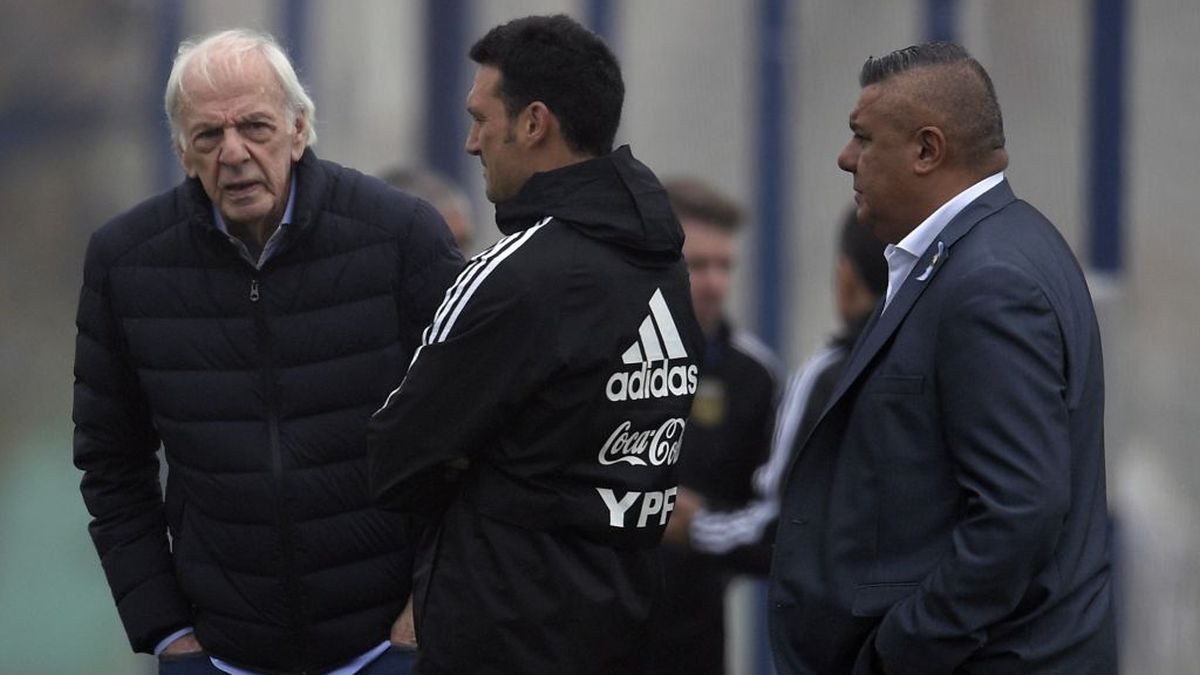César Menotti, legendary Argentine football manager, passes away
especiales

César Luis Menotti, the coach who led Argentina to victory at the 1978 World Cup and a central figure in Argentine football, has died at the age of 85. Menotti, who held the position of director of the national team within the Argentine Football Association (AFA), has died.
His death came as the country was engrossed in the final of the local championship between Estudiantes de la Plata and Vélez Sarsfield (ironically, Estudiantes won the final, led by that other great Argentine coach, Carlos Bilardo). The news of Menotti's death stopped the excitement in Santiago del Estero, where the final was being played. The announcement was made over the stadium's loudspeakers and screens, leaving everyone in silence.
Although Menotti's deteriorating health - he had been hospitalised in recent weeks with a serious arrhythmia - had made his death predictable, it still came as a shock to many of those who witnessed the final moments of the Cup.
In a world of fake news, people began to doubt what is circulating on social media until the official confirmation arrived. When it did, it silenced an entire stadium, which paid tribute to Menotti at half-time with a well-deserved minute's silence, followed by the Argentine war cry in homage: 'El que no salta, es un inglés' ('He who doesn't jump is an Englishman').
The AFA's official X account confirmed the sad news on that autumn afternoon: "The Argentine Football Association deeply regrets to announce the death of César Luis Menotti, current director of the national teams and former World Cup winning coach of Argentina," the statement read.
Born in Rosario, Santa Fe province, on 5 November 1938, Menotti enjoyed a successful career as a footballer, mainly with his beloved Rosario Central, with brief spells at Racing, Boca Juniors and Pele's Santos. However, it was with Huracán in 1973 that he reached the pinnacle of his coaching career, and in particular with the Argentine national team in 1978 and the youth team in 1979, becoming the coach who brought Argentina glory in both categories.
Menotti will be remembered not only for his achievements, but also for leaving behind a school of thought that continues to this day: Menottism, a philosophy that has divided the country into Menottistas and Bilardistas for over four decades.

FC Barcelona's Diego Armando Maradona his trainer Cesar Luis Menotti in 1983. GETTY IMAGES
"Players can stop running, they can stop getting involved in the game for long periods of time... The only thing they can't do is stop thinking," was the former Barcelona and Atletico Madrid coach's mantra. Barcelona won three cups under Menotti.
His approach of possession-based football, short passing and playing for the enjoyment of the game rather than just for the sake of winning has left its mark on the global footballing landscape. To him, playing well meant having fun, making short passes and aiming for the perfect goal, not just winning for the sake of winning. It was a philosophy that brought both joy and deep disappointment, such as at the 1982 World Cup in Spain, where Argentina, despite fielding a star-studded side (including Maradona), failed to perform and crashed out in controversial fashion, paving the way for the rise of Bilardismo.
Argentina's current president, Javier Milei, a supporter of Bilardismo, expressed his deep sorrow at Menotti's death and acknowledged the contributions of his ideological opponent.
Milei, who had publicly criticised Menotti's ideologies both on and off the pitch, paid tribute to Menotti's role in bringing joy to the country.
Menotti's crowning moment as a coach came on the afternoon of 25 June 1978. At the Monumental stadium in Buenos Aires, Argentina were crowned world champions for the first time, beating the Netherlands 3-1.
It was a team that was crowned by the goals of 'Matador' Mario Kempes, the saves of Ubaldo Fillol, the captaincy of Daniel Passarella, the strength and grit of Leopoldo Luque and the strategic cunning of Osvaldo 'Pitón' Ardiles.
The main criticism was the omission of Maradona from the World Cup squad (he had been dropped a few days earlier, along with Botaniz). "Son, you'll play a lot of World Cups, don't worry," he said to "Pelusa", who was a sensation in Argentine football at the time. His main achievement was to get players to want to play for the Argentine national team after years of disillusionment and unemployment in international competitions. Nobody wanted to play for the national team. The players were booed by derisive and pessimistic fans.

The 'Matador' Kempes, a key figure in Menotti's World Cup-winning team in 1978, celebrates his goal in the final against the Netherlands.GETTY IMAGES
The emotional burden of the so-called Sweden disaster was heavy. Argentina were thrashed and eliminated in the first round of the 1958 World Cup, something he managed to reverse with hard work and a style of football based on quality, although none of this would have been possible without the 1978 World Cup on home soil.
With an undeniable influence in Argentina and beyond, Menotti emphasised the country's footballing heritage: "Argentine footballers have a DNA, a genetics, a school that is respected around the world.
He often praised Pep Guardiola, the greatest exponent of Menotti in the modern world, for his beautiful style of play. Guardiola, who visited Argentina four times to talk to his mentor, was deeply saddened by Menotti's death, describing him as a genius and a man of conviction.
In Menotti's personal pantheon of footballing greats, he ranked Alfredo Di Stéfano, Johan Cruyff and Maradona, with a special admiration for Pele as the greatest of all time. Reflecting on Messi, Menotti said, "He always plays well. I've never seen him play poorly." Regarding Maradona, he remarked, "He was exceptional. He would have played football until he was 50 if he had led a normal life."
Menotti compared Messi's impact on Barcelona to Maradona's on Napoli, emphasizing the importance of individual players within teams and their ability to elevate them to greatness. With Menotti's passing, Argentina and the football world mourn the loss of a true legend, whose legacy will forever be remembered on and off the pitch."

Cesar Menotti talks with Lionel Scaloni and Claudio Tapia during a training session at AFA Training Camp. GETTY IMAGES
"The difference with Messi is that Barcelona already existed and was a work of art to which Messi added details of perfection. In contrast, Maradona invented Napoli; before Diego arrived, it was a band that ran in all directions, illustrating the importance that footballers can have on teams, beyond playing beautifully above all else, with which he ascended to the Olympus of football legends."














Add new comment